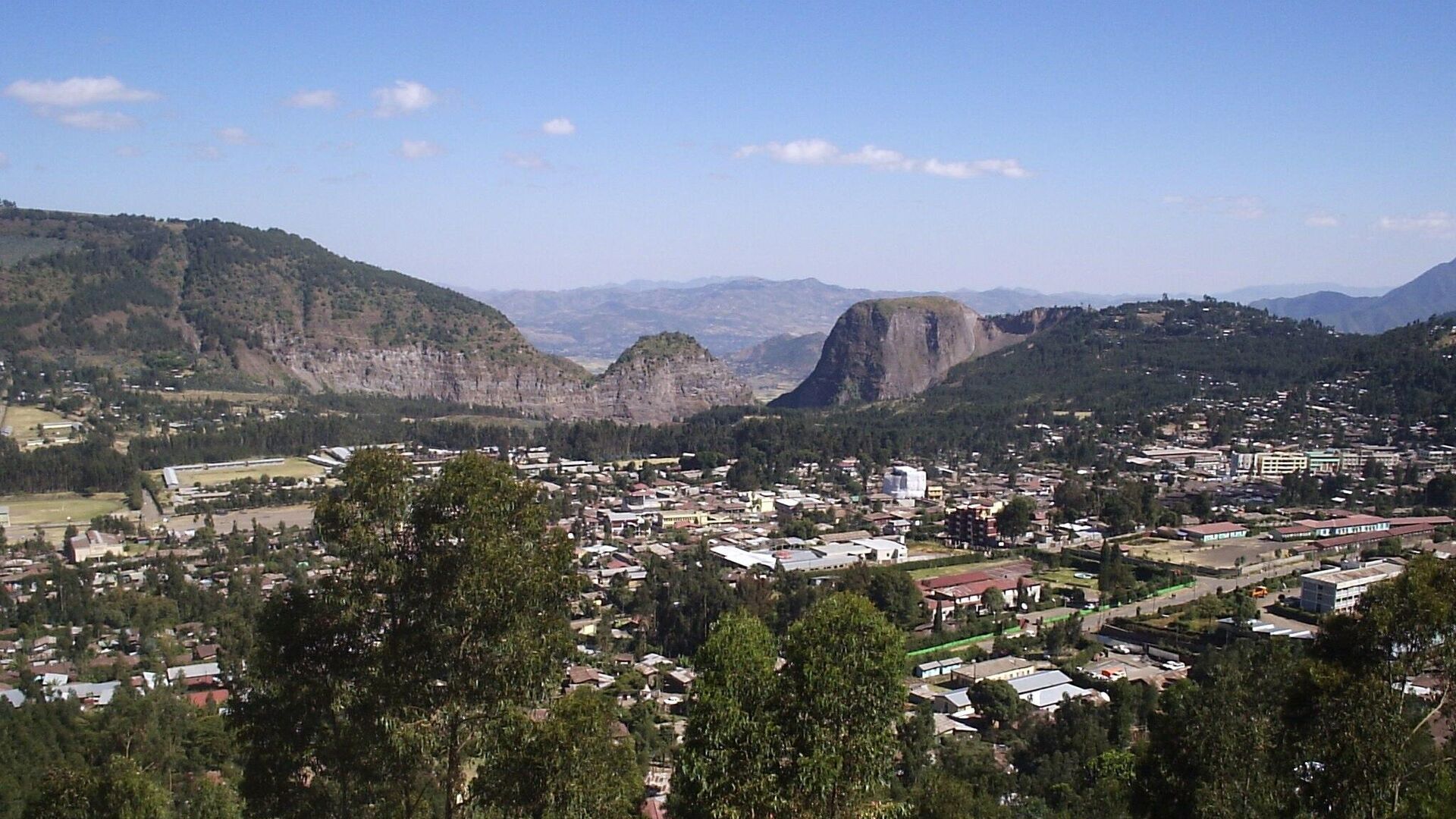TPLF On Retreat in Amhara After Ethiopian Army’s Capture of Strategic Cities Dessie, Kombolcha
00:16 GMT 07.12.2021 (Updated: 11:35 GMT 23.11.2022)
Subscribe
The Ethiopian government said on Monday its forces had recaptured two strategic cities in eastern Amhara state that had been captured two months earlier by the Tigrayan People’s Liberation Front (TPLF) during its southern drive on the capital. The victories pushed the TPLF back another 80 miles from their positions last week.
The Ethiopian National Defense Force (ENDF) have recaptured the cities of Dessie and Kombolcha from the TPLF, Ethiopian Prime Minister Abiy Ahmed announced on Monday, according to the state-owned Fana Broadcasting Corporate. Abiy also verified previous reports that the city of Bati, several miles to the east of Kombolcha, had also been recaptured.
The towns had been seized by the TPLF in October during a rapid advance along Highway 2 toward Addis Ababa. They penetrated as far as Debre Sina, about 130 kilometers from the capital, before being halted late last month. Debre Sina’s fall, and concurring alarmist reports in Western media that Addis’ collapse was imminent and foreigners should flee the city, helped push Abiy into taking direct control over the military.
Sputnik reported at the time on a secret meeting between US and European diplomats and a leading TPLF figure, during which they wished the TPLF luck in their offensive and spoke of forming a post-Abiy “transition government” after the capture of Addis.
The counteroffensive, launched last week, has quickly reversed the gains of the rebel group, which launched its offensive out of the northern Tigray state in June. Sputnik reported on Friday that Debre Sina had been recaptured and the TPLF pushed back to north of Shewa Rabit, a town 122 kilometers south of Dessie and Kombolcha, which sit just 11 kilometers apart.
However, TPLF spokesperson Getachew Reda pushed back on Abiy’s claims that the rebel group had suffered heavy casualties in the operation.
We left #NorthShoa, #kombolcha & #Dessie as part of our plan. There was no organized unit to ‘liberate’ these towns and the residents know it & #Abiy’s generals know it. Things are going according to our plan. The rest is just circus.
— Getachew K Reda (@reda_getachew) December 6, 2021
As we always say, #TigrayShallPrevail!
“We left North Shoa, Kombolcha & Dessie as part of our plan,” Getachew tweeted on Monday. “There was no organized unit to ‘liberate’ these towns and the residents know it & Abiy’s generals know it. Things are going according to our plan. The rest is just circus.”
Monday was the first time the TPLF spokesperson commented directly on claims by Abiy’s government about gains made during the counteroffensive, although he referred to other smaller attacks during that time.
During the TPLF’s occupation of Kombolcha, it was accused by Abiy’s government of pillaging UN World Food Program (WFP) warehouses in the city, as well as executing more than 100 youth.
Rebellion by Old US Partners
The conflict began in November 2020 after the TPLF attacked ENDF forces stationed in Tigray. Abiy’s government had declared Tigrayan elections to be illegal after it postponed nationwide elections in September due to the COVID-19 pandemic. However, their antagonism goes back further, to the selection of Abiy, an Oromo, over a Tigrayan figure to head the Ethiopian People's Revolutionary Democratic Front (EPRDF) political alliance, as had been the case for 27 years. Abiy soon won the prime ministership and set about reforming the political structure to weaken the TPLF’s domineering hand, setting him on a collision course with the TPLF.
Under the TPLF, Ethiopia became a major US partner in Africa and supporter of the War on Terror, invading Somalia in 2006 to overthrow the Islamic Courts Union government and occupying the country for three years. They also launched a disastrous attack on Eritrea in 1998, which had won its independence from Ethiopia in 1991 and had become a pariah in the eyes of Washington. The war did little to change their borders, but resulted in the deaths of at least 120,000 people. Abiy signed a peace treaty with Asmara in 2019, for which he won a Nobel Peace Prize.
After the TPLF launched its November 2020 attack, Eritrea entered the conflict on Ethiopia’s side and continues to occupy parts of northern Tigray state.
The US has sanctioned the government of Eritrean President Isaias Afwerki, claiming it is exacerbating the Ethiopian conflict and blocking humanitarian aid from reaching the conflict zone. Washington has also levied sanctions on Abiy’s government, accusing it of human rights abuses in Tigray. His government, in turn, has accused the US of weaponizing aid and threatened news agencies with having their licenses revoked if they continue to “endanger Ethiopia’s national interest, territorial integrity, or the peaceful coexistence of the people of Ethiopia.”
The conflict has created a massive humanitarian crisis, with more than 70,000 people fleeing across the border into neighboring Sudan and an estimated 4 million more internally displaced, according to United Nations data. There is no reliable death toll for the conflict.
As the Biden administration has postured itself as increasingly ready to become directly involved in the conflict, Ethiopians both in the country and in the diaspora have spoken out against it, using slogans like "Hands off Ethiopia" and the hashtag #NoMore, as well as holding large rallies in more than 30 countries.




